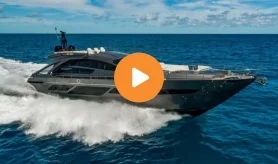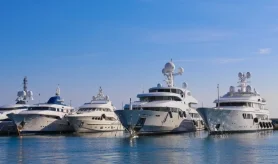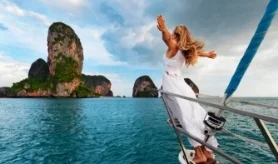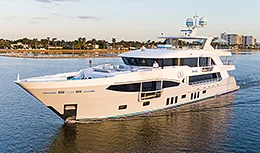- Alaskan Yachts
- Azimut Yachts
- Back Cove Yachts
- Beneteau Yachts
- Benetti Superyachts
- Bertram Yachts
- Boston Whaler
- Broward Yachts
- Buddy Davis Sportfish
- Burger Yachts
- Cabo Yachts
- Catamarans
- Carver Motoryachts
- Center Console
- Chris-Craft Yachts
- Cruisers Yachts
- DeFever Trawlers
- Dufour Sailboats
- Fairline Yachts
- Feadship Yachts
- Ferretti Yachts
- Filippetti Yachts
- Formula Yachts
- Fountaine Pajot Cats
- Grady-White
- Grand Banks Trawlers
- Hargrave Yachts
- Hatteras Yachts
- Hinckley Picnic Boats
- Horizon Yachts
- Hydra-Sports
- Intrepid Boats
- Jarrett Bay Sportfish
- Jeanneau Yachts
- Kadey-Krogen Trawlers
- Lazzara Yachts
- Lekker Boats
- Luhrs Sportfish
- Marlow Yachts
- Maritimo Yachts
- Marquis Yachts
- Mazu Yachts
- McKinna Motoryachts
- Meridian Yachts
- Midnight Express
- MJM Yachts
- Mochi Craft
- Neptunus Motoryachts
- Nordhavn Trawlers
- Nordic Tugs
- Numarine Yachts
- Ocean Alexander Yachts
- Ocean King
- Offshore Yachts
- Outer Reef
- Oyster Sailing Yachts
- Pacific Mariner Yachts
- Palmer Johnson Yachts

Fabien Cousteau: To Infinity and Beyond
Meet Fabien Cousteau, the aquanaut who’s building the world’s largest underwater research station.

Something that my grandfather imparted on me, which was a quote that he repeated throughout life, and something that I feel is a philosophy we should all follow, is simply summarized as: “People protect what they love, they love what they understand and they understand what they’re taught.”
“People protect what they love, they love what they understand and they understand what they’re taught.”
By being able to share stories and impassioning people to care about our life support system, we stand to tackle a lot of the problems that we face in today’s society. Today, we don’t have much time left. We’ve been talking about climate change as early as the 1950s and the overconsumption of natural resources, but we face some fundamental challenges.
Some estimate that the ocean – our life support system – has an economic value of $24 trillion per year or 5% of global GDP. But in my opinion, that is a gross underestimate because we don’t think about what the ocean really offers us, both tangible and intangible, like every breath that we take, every glass of water that we drink and virtually all of the weather patterns that we are subject to.
But as the entire system was more estuary than river, the meander of the river’s two forks and a smaller stream called the Tarpon River, along with the inlet between the ocean and the sound, shifted almost constantly, much to the chagrin of the Spaniards who tried to fix it on their maps in the 1500s. It may have first been called Rio Salado (salty river) by the Spanish in 1513, but it was identified as R. Nova on maps dating to 1631. It was a wild thing with surprising fluctuations in depth, whirlpools and eddies indicating submerged springs, and on-again-off-again inlets breaking through the sand barrier anywhere from Hillsborough to Dania Beach under the influence of hurricanes. Its first permanent inlet was not cut until 1930, establishing Port Everglades.
We cannot continue to irreversibly damage our planet before we even know what’s there. After all, we’ve explored less than 5% of our ocean world to date. This is Pandora’s Box of life, and yet we haven’t even scratched the surface.

My grandfather built some of the earliest underwater habitats in the 1960s. One of them – Aquarius – was the subject of an Oscar award-winning movie called ‘The World Without Sun’. But those days are long gone. Aquarius is today the only functioning marine laboratory, and it’s over 30-years-old. It’s antiquated and only 400-internal-square-foot. Today, we have no modern marine habitat to conduct time intensive research. A state-of-the-art marine platform is our missing tool in the toolbox of ocean exploration. After all, you don’t see astronauts flying to space ships that are over 50-years-old. So why are we doing that with the ocean?
We’re dedicating our lives to the next evolutionary step in ocean exploration. That is my vision. I’ve been scuba diving since I was four. I’ve been on countless expeditions since I was seven-years-old, scrubbing the hull of CALYPSO for my summer job and working my way to the night shift at the helm and beyond. But it wasn’t until Mission 31, the longest mission ever to happen at the only undersea marine laboratory Aquarius, that I truly understood the impact that living and working in our ocean can have and the assets that it brings. One of the biggest challenges is the limit of time underwater and the tangibility of that research onsite.
Proteus is the first underwater habitat that will have a multipurpose use. It’s a platform for collaborations; a public private partnership that allows for us to cater to a number of different entities, from governmental and private, to researchers from all over the world. It’s a platform that enables resident aquanauts to be based at the final frontier. They can venture forth to conduct their research virtually unlimited, without decompression obligation until the end of the missions.


With Mission 31, we were able to carry out over three years’ scientific research in 31 days. The first Proteus will be installed in two to three years in Curaçao, one of the few remaining pristine, healthy coral reef ecosystems in the Caribbean. We’ll be in a marine-protected area and we’ll be able to deploy pristine biodiverse underwater sanctuaries within the islands. We envision multiple Proteus habitats to be strategically placed around the world to create a comprehensive information-gathering platform for our life support system. Proteus will be modular and upgradable, so that we can continually keep up with future demands.
Proteus will be 10 times the size of previous habitats, nearly 4,000 square feet. It will be based at three atmospheres, which is the maximum allowable for a long-term exposure to multiple atmospheres of air, so that we can cater to the largest group of researchers. The state of the art wet and dry labs will be modular themselves so that we can continue to upgrade the internal infrastructure, as well as being modular on the outside. We’ll be able to accommodate the largest group that’s ever been, which is at least 12 people, for months at a time. And it will have the first full broadcast production studio underwater, which will allow us to communicate and connect the above sea world with the undersea world.

02. The Proteus marine research platform will enable the discovery of new species of marine life, create a better understanding of how climate change affects the ocean, and allow for the testing of advanced technologies for green power, aquaculture and robotic exploration
03. Proteus allows divers to spend an entire day conducting research on the ocean floor because they are saturated (when the bloodstream is equalized with suitable gasses at the pressure of the surrounding water), enabling them to live, work an
Data gathering is going to be crucial, but as we saw with Mission 31, unfortunately it’s disparate and dysfunctional. Proteus will be an on-design platform that will be able to gather that data and organize it in a way that is palatable and usable for any entity. It’s also a platform for extreme environment testing. Imagine, for example, a space entity, be it NASA or other, that can use this as a payload model to train their future astronauts, because there are a lot of similarities between the undersea world and the outer space world. That’s why we call Proteus the international space station of the ocean. There’ll be many products that can come out of this for space exploration and colonization or practical use, like we saw with Mission 31, such as the edgertronic camera, which can shoot 20,000 frames a second to look at biomechanics, biomimicry and things the human eye can’t see
Nearest and dearest to my heart is being able to tell the story; to be this undersea broadcast station so that people can view what’s happening at Proteus…The most important thing is the human ocean connection. It goes back to what my grandfather said, people protect what they love. They love what they understand, and they understand what they’re taught. We have, unfortunately, become terrestrial beings in the evolution of our species, but let us not forget that the ocean is the only reason that we exist. It is the universal connector. It is responsible for everything that we cherish and depend on. And with that, we must be more connected with it in order to be able to generate the solutions and implement the solutions for the future of humanity.
“Let us not forget that the ocean is the only reason that we exist.”
Request a Copy [FRANK Issue 2]
From intelligent debate to cutting-edge science, and risky sports to surreal charter experiences, FRANK does not shy away from the awkward, controversial, or questionable details. Brazen at times, amusing in spirit, and always transparent in discussion, the focus is on discovering new angles and enjoying every minute. And, of course, always being ‘frank’ about the conclusions.
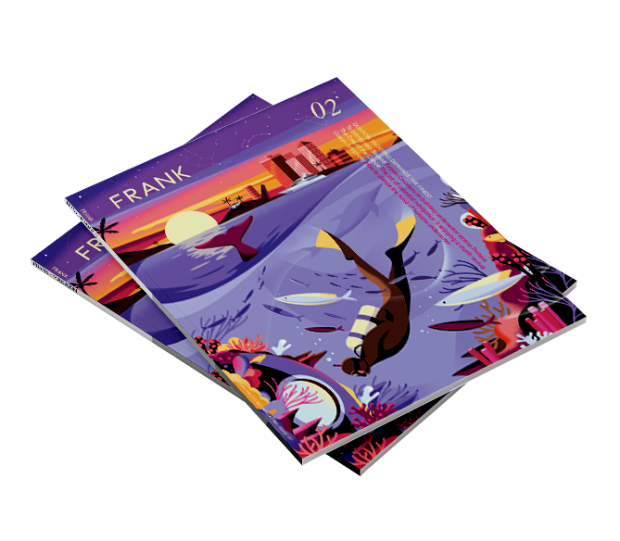
Request A Copy
